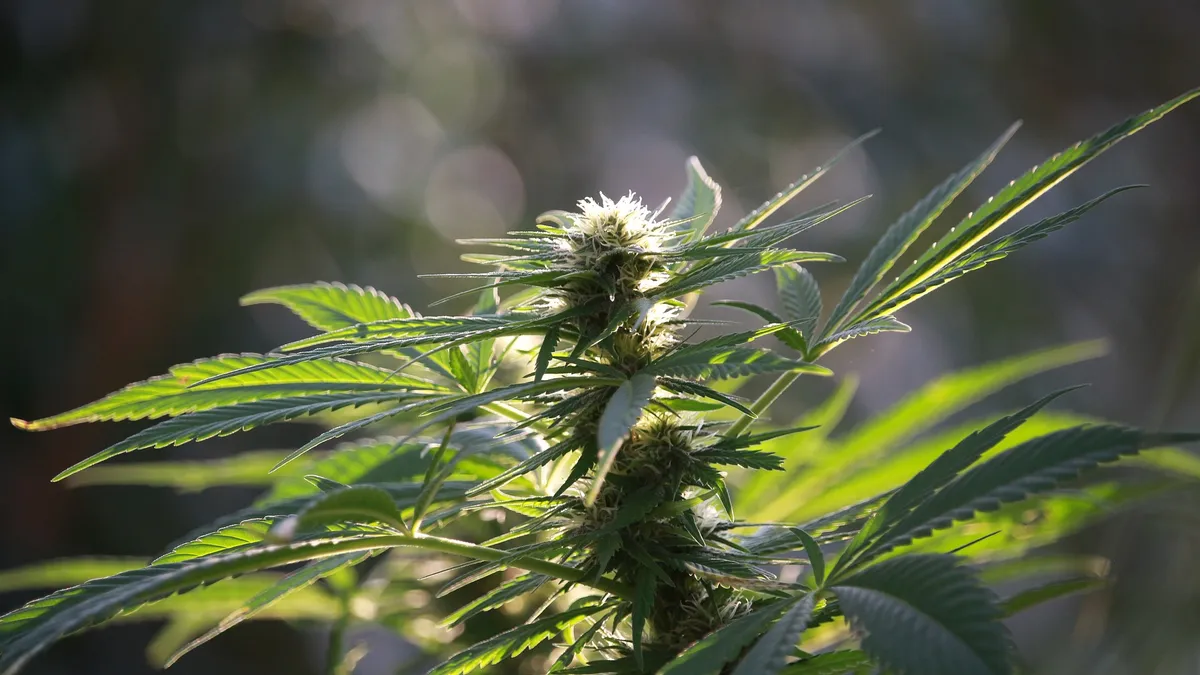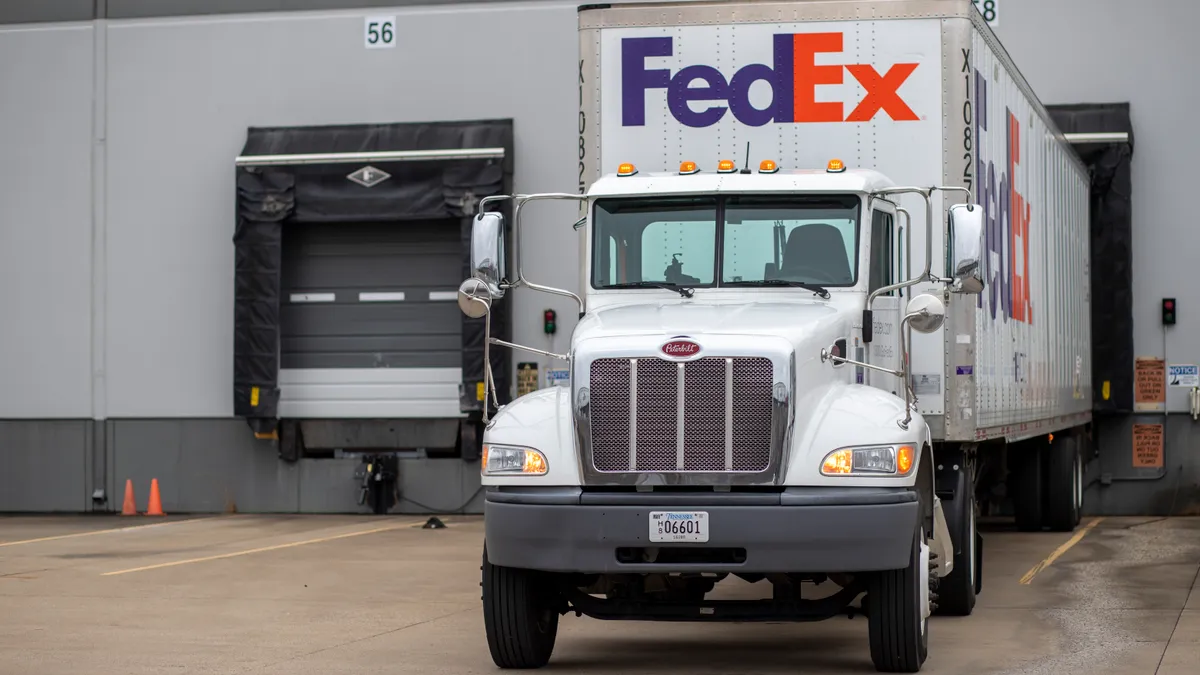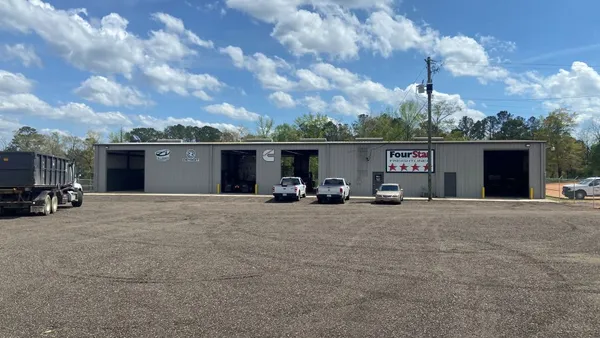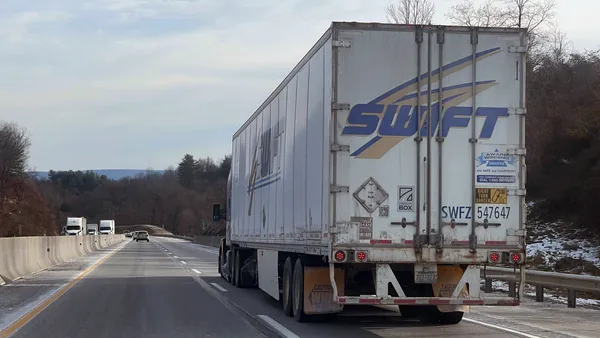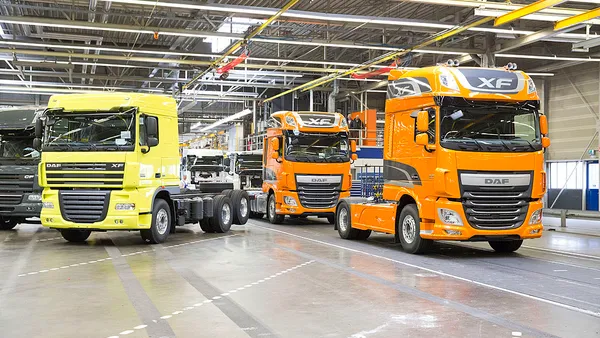When 1606 Original Hemp ships a load, it crosses the country, from the company’s growing facilities in California to its manufacturing plants in New York, and back again. That means crossing dozens of state lines and navigating just as many hemp transport regulations — an overwhelming prospect.
And it's more than 1606 Original Hemp wanted to manage on its own, so it turned to specialty carrier 357 Hemp Logistics for help.
Since the passage of the 2018 Farm Bill, which legalized hemp production, the industry has exploded, with some estimates of its growing to become a $16 billion cash cow by 2027. As new hemp operations spring up, from farmers to processors to retailers, hemp transport has taken on greater importance.
While the Farm Bill has defined the legal THC content for a cannabis product to be considered hemp at less than 0.3%, states have liberty to change or expand upon those rules.
"It’s a constantly changing landscape, and it’s easy to mess things up," said Kevin Schultz, co-founder and president of 357 Hemp Logistics.
"It’s a constantly changing landscape, and it’s easy to mess things up."

Kevin Schultz
Co-Founder and President of 357 Hemp Logistics
"If a driver gets pulled over and his load seized, it has a big downstream impact. We see it time and time again," Schultz said.
At issue is the fact that hemp can easily go bad if not processed or sold and used within a window of time. If a load of hemp is seized and held, it may grow moldy or become stale. This has a domino effect through the supply chain.
"If we pick up a $250,000 load of raw material and then the truck gets quarantined, people throughout the supply chain are out of a big sum of money," said Schultz.
357 Hemp Logistics and other similar companies specialize in preventing that from happening, by mastering the rules and taking extra steps to ensure compliance.
High-stakes compliance
Like 357 Hemp Logistics, Michigan-based Fide Freight is focused on hemp transport. Director of Operations Zach Wilcox said that achieving a level of expertise in this niche took some time.
"Compared to hemp, moving other cargo is a breeze," he said. "Keeping up with the rules is a huge challenge."
In Idaho, for instance, trucks must carry with them a lawful hemp verification and driver certification, according to Wilcox. In neighboring Nevada, the state requires a special permit for drivers, different from that in Idaho.
To provide customers with assurance their product will arrive intact and on time, Wilcox said, Fide Freight has worked to establish a network of relationships with local law enforcement. "We also understand what permits are required, established [standard operating procedures] and educate our drivers," he explained.
"Compared to hemp, moving other cargo is a breeze."

Zach Wilcox
Director of Operations at Fide Freight
The driver part of the equation can be particularly tricky, as many are hesitant to transport hemp for fear of running afoul of the law. "Many drivers don’t want to try it," said Wilcox. "So, we teach them what to expect, what paperwork needs to be in place from one state to another, and back them up with 24/7 compliance help."
At 357 Hemp Logistics, Schultz said, the company optimizes routes working off the varying laws, and then gives its drivers all the information they need to comply.
"We give our drivers all the paperwork and go above what is necessary," he said. "If a driver gets pulled over, we need to ‘be there’ to the extent that we can. If you cross a state line and get pulled over for narcotics charges, then you’re looking at drug trafficking. The stakes are high."
This is where a transportation partner and their established relationships with law enforcement can go a long way. So, too, can insurance. 357 Hemp Logistics, for instance, provides complementary cargo insurance for valuations up to $50,000. Most cargo insurance does not extend to hemp, according to Schultz.
It’s these extra steps that sold 1606 Original Hemp President Wil Ralston on partnering with a specialty partner. "Many mainstream transportation companies don’t necessarily understand how to ship hemp," he said. "They don’t know how to book the shipment or what to do if their drivers get pulled over. You’re not shipping a birthday card here — it’s a specialized product that requires specialized handling."
Do the research; reap rewards
Schultz admitted that the learning curve in hemp transport has been steep.
"This is a huge industry with the potential for a massive impact on the economy," he said. "From construction to bio-fuels and textiles, most carriers will probably dabble in hemp eventually."
"From construction to bio-fuels and textiles, most carriers will probably dabble in hemp eventually."

Kevin Schultz
Co-Founder and President of 357 Hemp Logistics
Learning the ins and outs, then, is worthwhile for most carriers. "Keep in mind that the longevity of the industry must be in your best interest," Schultz said. "People are relying on you."
He recommends that carriers interested in dipping their toes into the water start by doing their research. "Establish relationships with law enforcement, develop SOPs and learn the laws from state to state," said Schultz. "It’s not an easy business and the risks are high, but so are the rewards if you’re doing it right."


